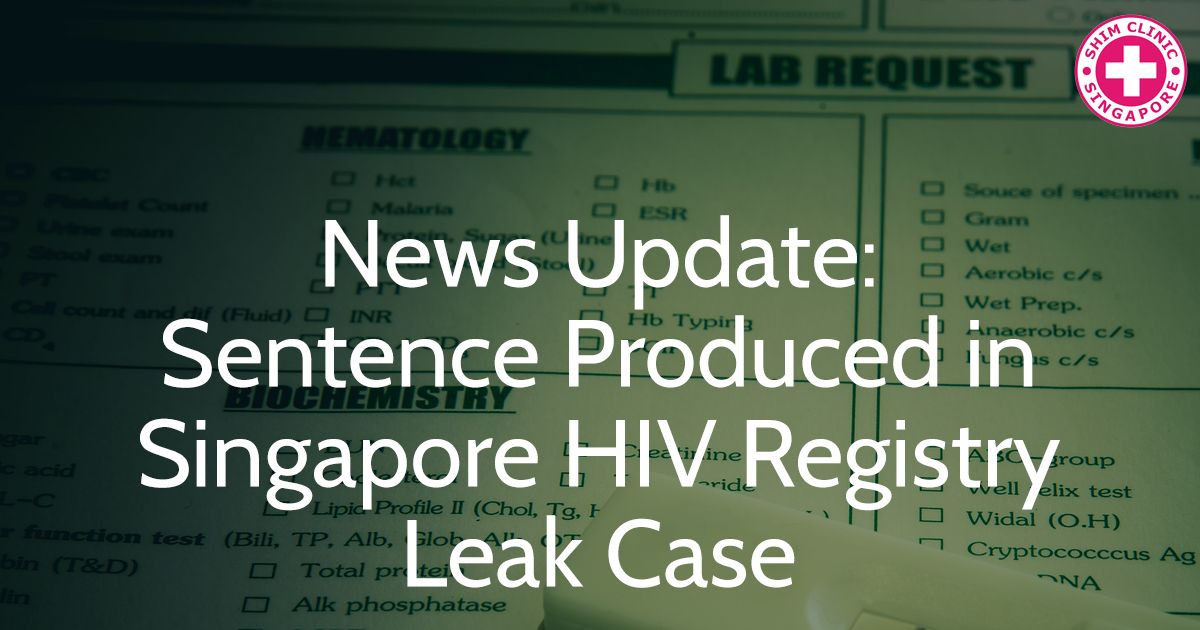An American citizen has been sentenced in connection to the Singaporean HIV registry leak. Mikhy Brochez was found guilty of attempting to extort the Singaporean government by threatening to publicly release the registry information that was obtained in an illicit manner.
The HIV Registry Leak
Mikhy Farrera Brochez, 34, leaked the names and addresses of 5,400 Singapore residents and 8,800 foreigners included in the HIV registry maintained by the Singapore Ministry of Health.
On January 28, 2019, the ministry made an announcement about the leak of the personal data and also linked the breach to Brochez.
Brochez came to Singapore in 2008 with an employment pass. In 2016, he was arrested on fraud and drug-related charges. A 28-month sentence was announced in early 2017. One of the fraudulent offences Brochez committed was misleading authorities about his HIV status for the purpose of obtaining the employment pass.
Partnering up with a Singaporean doctor, Brochez eventually found a way to obtain the information featured in the Singapore HIV registry.
According to the Ministry of Health, the information in the registry is required to ensure the provision of quality healthcare services, to do effective infection surveillance and monitor the situation of HIV-positive individuals.
Based on this information, the government can allocate sufficient resources for the prevention and the treatment of HIV infections. Thus, numerous experts argue that a HIV registry is an important tool that needs to continue being maintained in the future.
The data leak, however, contributed to widespread anxiety. Many HIV-positive individuals feared that they’d lose their job or suffer social consequences because of the public nature of the sensitive information.
A Just Sentence?
A 12-person jury in Kentucky where the Brochez case was examined found the defendant guilty of transferring the data registry to the state and emailing online links in an attempt to force the Singaporean government to undertake specific actions.
In his defence, Brochez stated that he was acting as a whistleblower. It was his intention to show the vulnerability of the registry and to contribute to its closing down.
Prosecutors in Kentucky found sensitive data on several phones and computers. Brochez also uploaded the registry on his Google drive for the purpose of extorting the government, as well as sending links to Singaporean media.
Based on the jury’s verdict, Brochez will receive his sentence in September 2019.
According to law professionals, the sentence could range from 18 to 24 months in jail.
The prosecution has countered the whistleblowing argument by saying it made little sense for someone to use a registry deemed unreliable to extort an official entity.
The attorney representing Mikhy Brochez said that his client may appeal the verdict once it is announced in September.
HIV: No Longer a Death Sentence
While the HIV registry in Singapore is needed for the provision of healthcare services, there’s still a widespread stigma connected to STDs. Recent reports suggest that Singapore still lags behind in terms of HIV social acceptance.
For such outdated attitudes to change, it’s important for awareness to increase. There are still people unaware of the fact that HIV is no longer a death sentence. Effective HIV testing and the use of the right antiretroviral therapy can both help HIV-positive individuals lead long and productive lives.
Two of the most important developments in the realm of HIV treatment and prevention include HIV PEP and HIV PrEP.
Pre-exposure prophylaxis or HIV PrEP is a treatment aimed at reducing the risk of HIV infection among high risk individuals. It involves taking an HIV medication for a specified period of time, reducing the risk of contracting the human immunodeficiency virus by as much as 99 per cent.
Post-exposure prophylaxis or HIV PEP is a suitable choice for people who may have been exposed to the virus via unprotected sex or a failure of the contraceptive method. The sooner PEP is started after the exposure, the better the results. The treatment again involves the use of medications that reduce the risk of a viral infection by more than 90 per cent. For best chances, PEP should be started no later than 72 hours after exposure.
A STD clinic in Singapore like Shim Clinic offers reliable HIV testing, PEP, PrEP and expert consultations. You can find out more by contacting Shim Clinic or visiting the facility during its operation hours (every day of the week).


Pingback: Over 210,000 Men in Singapore at Risk of HIV Infection, New Study Shows